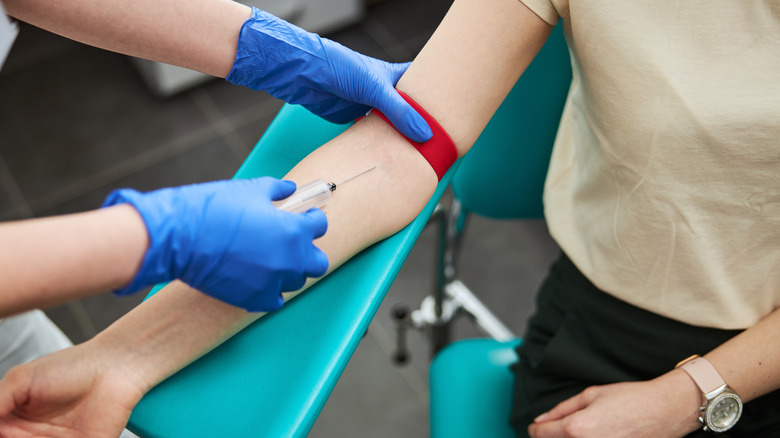Study Reveals How A Simple Blood Test Could Predict Diabetes And Cardiovascular Disease
Diabetes and cardiovascular disease are two of the most prevalent medical conditions in the United States. According to the Centers for Disease Control and Prevention (CDC), over 37 million Americans have been diagnosed with diabetes. Cardiovascular disease, also known as heart disease, is the leading cause of death in the United States. The signs and symptoms of diabetes and cardiovascular disease may go undetected for years, leaving you unaware of your health status. Both conditions can cause irreversible damage to your vital organs and result in death if not detected and managed properly (via CDC).
Even if you're eating healthy foods and exercising daily, risk factors such as age, race, gender, and family history may leave you feeling as if your health is beyond your control and it's only a matter of time before you're diagnosed with one of these conditions. According to Medical News Today, a simple blood test could provide you with life-saving information about your risk for diabetes and cardiovascular disease.
Lipid profiling can provide important clues
Knowing your future risk for diabetes and cardiovascular disease could be as easy as getting a lab test. According to Medical News Today, Dr. Chris Lauber, a professor of computational virology at Twincore in Germany, led a study that revealed that lipid levels in blood plasma could predict future diabetes and cardiovascular disease risks. Researchers measured the concentration of 184 lipids found in the blood plasma of 4,000 participants. These lipid profiles were used to assign each participant into one of six groups. After studying participants for over 20 years, researchers discovered that 37% of the higher risk group had developed diabetes, and 40% had developed cardiovascular disease. Those in the higher risk group had a greater chance of developing obesity as well.
Dr. Suneet Singh, medical director at CareHive, told Medical News Today, "[T]his earlier disease detection occurs at a time where the disease has not become clinically evident. As a result, researchers and clinicians can now take on diseases from a more proactive preventive lens and not simply one that starts at the treatment stage." Knowing the results of this simple lipid test could prompt you to become more proactive about making healthier lifestyle choices to prevent diabetes and cardiovascular disease.


